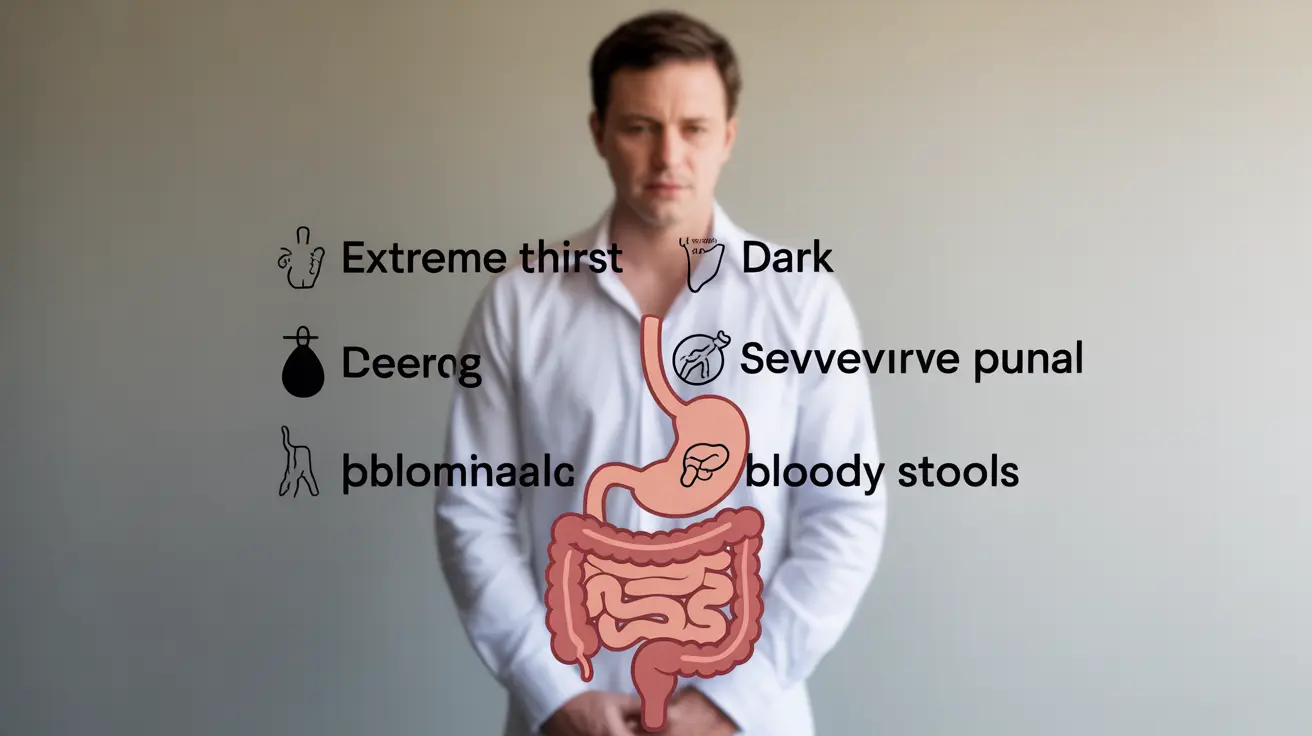Diarrhea is a common condition that usually resolves on its own, but certain symptoms can signal a medical emergency requiring immediate attention. Understanding when to seek emergency care for diarrhea can be crucial for preventing serious complications and ensuring proper treatment.
This comprehensive guide will help you recognize the warning signs that warrant an emergency room visit, with special attention to symptoms in both adults and children.
Severe Dehydration Warning Signs
Dehydration is one of the most serious complications of diarrhea that may require emergency care. Watch for these critical signs:
- Extreme thirst
- Dark urine or no urination for 12+ hours
- Severe weakness or dizziness
- Dry mouth and tongue
- Sunken eyes
- Reduced skin elasticity
- Rapid heartbeat
- Confusion or irritability
Dangerous Symptoms Requiring Immediate Care
Several symptoms accompanying diarrhea indicate the need for emergency medical attention:
Severe Abdominal Pain
Intense, persistent abdominal pain could indicate serious conditions such as appendicitis, inflammatory bowel disease, or intestinal obstruction.
Blood in Stool
The presence of blood in stool can appear as bright red blood or black, tarry stools. This may indicate internal bleeding, severe infection, or inflammatory conditions requiring immediate medical evaluation.
High Fever
A fever above 102°F (39°C) in adults, especially when accompanied by severe diarrhea, requires urgent medical attention as it may indicate a serious infection.
Special Considerations for Children
Children are particularly vulnerable to complications from diarrhea. Seek emergency care if your child exhibits:
- Severe irritability or lethargy
- No wet diapers for 4-6 hours
- High fever (above 102°F for children over 3 months)
- Bloody or black stools
- Severe abdominal pain
- Signs of severe dehydration
Duration and Frequency Concerns
The duration and frequency of diarrhea can indicate when emergency care is needed:
- Diarrhea lasting more than 7 days
- More than 10 watery stools per day
- Inability to keep any liquids down for 24 hours
- Severe symptoms persisting despite home treatment
Frequently Asked Questions
When should I go to the emergency room for diarrhea symptoms?
Seek emergency care if you experience severe dehydration, bloody or black stools, high fever (102°F or higher), severe abdominal pain, or if diarrhea persists for more than 7 days without improvement.
What are the warning signs of dehydration caused by diarrhea that need urgent care?
Urgent care is needed for signs of severe dehydration including extreme thirst, dark or no urination for 12+ hours, severe weakness, dry mouth and tongue, sunken eyes, and confusion or irritability.
How long can diarrhea last before I should seek medical attention or visit the ER?
Visit the ER if diarrhea lasts more than 7 days, occurs more than 10 times per day, or if you can't keep liquids down for 24 hours. Earlier medical attention may be needed if severe symptoms are present.
What does blood or black stool during diarrhea indicate, and when is it an emergency?
Blood in stool (either bright red or black and tarry) is always an emergency as it can indicate serious conditions such as internal bleeding, severe infection, or inflammatory disorders. Seek immediate medical care.
What symptoms in infants and children with diarrhea require an immediate ER visit?
Take children to the ER immediately if they show signs of severe dehydration, high fever, bloody stools, severe abdominal pain, extreme irritability or lethargy, or if they haven't had a wet diaper for 4-6 hours.
Remember, while many cases of diarrhea can be managed at home, it's always better to err on the side of caution when severe symptoms arise. Don't hesitate to seek emergency care if you're concerned about your symptoms or those of a loved one.




